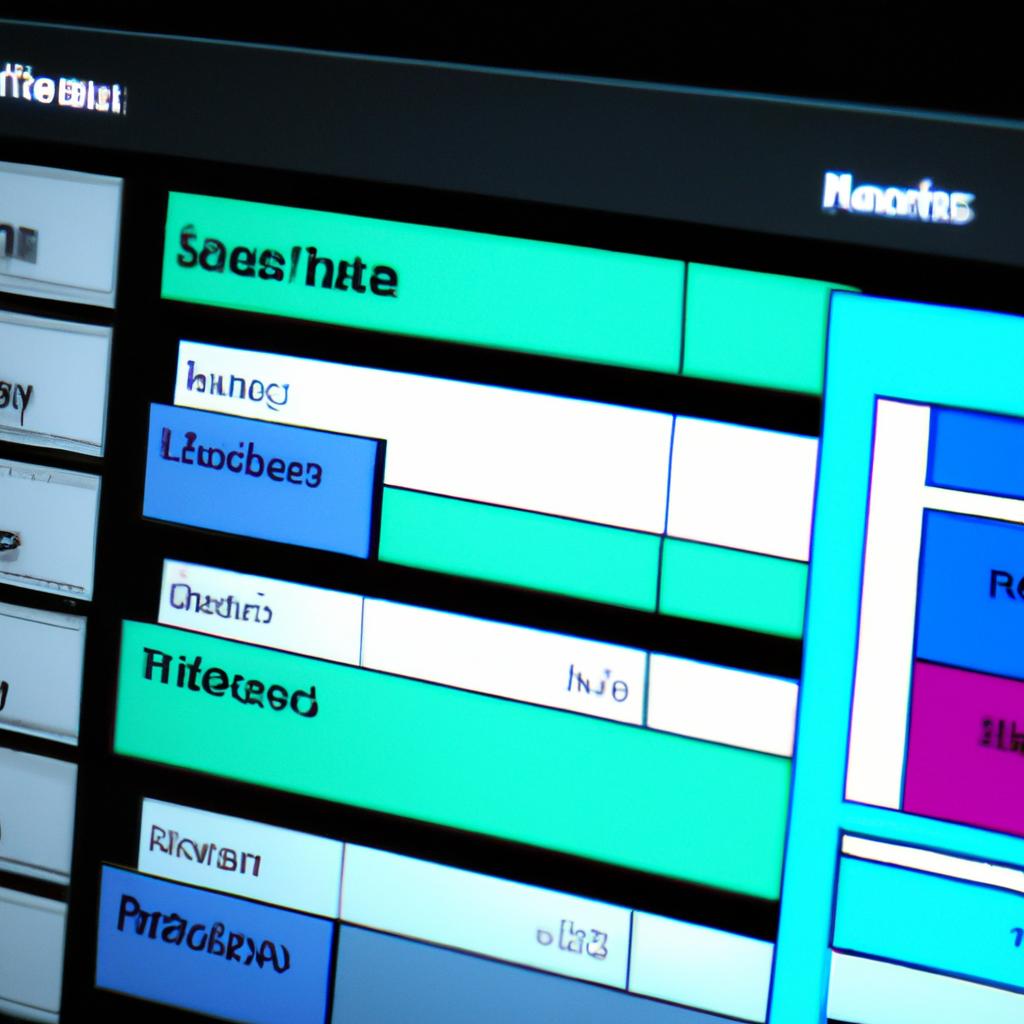The Ultimate Guide to Data Center Management Software
Are you struggling to manage your data center efficiently? Do you find it challenging to maintain uptime, security, and compliance while keeping costs low? If so, you’re not alone. Data center management is a complex task that requires specialized software to streamline operations and improve performance.
In this guide, we’ll explore the world of data center management software and how it can help you optimize your infrastructure. We’ll cover the features, benefits, types, and factors to consider when choosing the right software for your organization. By the end of this guide, you’ll have a comprehensive understanding of data center management software and how it can benefit your business.
But first, let’s define what data center management software is and why it’s essential. Data center management software is a suite of tools designed to monitor, manage, and automate data center operations. It provides real-time visibility into your infrastructure, allowing you to identify and address issues before they become critical. With data center management software, you can optimize resource allocation, reduce downtime, improve security, and ensure compliance with industry standards.
In today’s digital age, data is the lifeblood of businesses. Every organization collects, stores, and processes vast amounts of data, and it’s crucial to manage it effectively. However, data center management is a daunting task that requires expertise, time, and resources. That’s why data center management software is essential for businesses of all sizes. It simplifies complex tasks, improves performance, and reduces costs, allowing you to focus on your core business activities.
Now that we’ve covered the basics let’s dive deeper into the world of data center management software.
Features of Data Center Management Software

Data center management software comes with a range of features that help you monitor, manage, and automate your infrastructure. Here are some of the key features to look for:
Monitoring and Alerting
Real-time monitoring and alerting are critical features of data center management software. It provides you with real-time visibility into your infrastructure, allowing you to identify and address issues before they become critical. With monitoring and alerting, you can track server performance, network bandwidth, and storage utilization, ensuring optimal resource allocation.
Capacity Planning and Management
Capacity planning and management features help you optimize your infrastructure and ensure that you have enough resources to meet your business needs. It allows you to forecast resource consumption, identify bottlenecks, and plan for future growth. With capacity planning and management, you can avoid downtime, reduce costs, and ensure that your infrastructure is always available.
Asset Management
Asset management features help you track and manage your hardware and software assets effectively. It allows you to monitor the lifecycle of your assets, including procurement, deployment, maintenance, and retirement. With asset management, you can optimize resource allocation, reduce costs, and ensure compliance with industry standards.
Automation and Orchestration
Automation and orchestration features help you streamline your operations and reduce manual intervention. It allows you to automate repetitive tasks, such as provisioning, patching, and backups, ensuring consistent and reliable performance. With automation and orchestration, you can improve efficiency, reduce costs, and free up your IT staff to focus on more strategic tasks.
Security and Compliance
Security and compliance features help you secure your infrastructure and ensure that you comply with industry regulations and standards. It allows you to monitor and manage access control, encryption, and auditing, ensuring that your data is protected. With security and compliance, you can reduce the risk of data breaches, avoid penalties, and maintain customer trust.
Reporting and Analytics
Reporting and analytics features help you gain insights into your infrastructure, allowing you to make informed decisions. It allows you to generate reports on performance, utilization, and compliance, giving you a holistic view of your infrastructure. With reporting and analytics, you can identify trends, optimize resource allocation, and improve your infrastructure’s performance.
Benefits of Using Data Center Management Software

If you’re still not convinced about the importance of data center management software, let’s take a closer look at the benefits it offers.
Improved Efficiency and Productivity
Data center management software streamlines operations by automating routine tasks, reducing manual intervention, and optimizing resource utilization. It provides real-time visibility into your infrastructure, allowing you to identify bottlenecks, optimize workflows, and improve performance. With data center management software, you can eliminate repetitive tasks, reduce errors, and improve response times, leading to increased efficiency and productivity.
Reduced Downtime and Maintenance Costs
Downtime can be costly for businesses, resulting in lost revenue, damaged reputation, and decreased customer satisfaction. Data center management software helps you proactively monitor your infrastructure, identify potential issues, and take preventive measures to avoid downtime. It also simplifies maintenance tasks, making it easier to identify and address issues before they become critical. By reducing downtime and maintenance costs, data center management software can save your business time and money.
Better Decision-Making and Planning
Data center management software provides real-time analytics and reporting, allowing you to make informed decisions and plan for the future. It helps you identify trends, predict capacity requirements, and optimize resource allocation, enabling you to make data-driven decisions. With data center management software, you can plan for growth, anticipate changes, and stay ahead of the competition.
Enhanced Security and Compliance
Security and compliance are critical concerns for businesses, especially those handling sensitive data. Data center management software provides robust security features, including access control, encryption, and intrusion detection, to protect your infrastructure from cyber threats. It also helps you ensure compliance with industry standards, such as HIPAA, PCI DSS, and GDPR, reducing the risk of costly penalties and lawsuits.
Scalability and Flexibility
As your business grows, your infrastructure needs to keep up. Data center management software provides scalability and flexibility, allowing you to expand your infrastructure rapidly and seamlessly. It enables you to provision and deprovision resources on-demand, scale up or down based on usage, and adapt to changing business needs. With data center management software, you can stay agile and competitive in a rapidly evolving market.
Types of Data Center Management Software
When it comes to data center management software, there are several types to choose from, each with its own advantages and disadvantages. Let’s explore the four main types of data center management software: on-premise, cloud-based, open-source, and commercial.
On-premise
On-premise data center management software is installed on your organization’s servers and managed by your IT team. This type of software offers complete control over your data center operations, allowing you to customize it to your specific needs. On-premise software is ideal for organizations that require high levels of security, compliance, and confidentiality. However, it can be expensive to maintain and upgrade, and it may not be as scalable as cloud-based solutions.
Cloud-based
Cloud-based data center management software is hosted on remote servers and accessed through the internet. It offers several benefits, including cost-effectiveness, scalability, and flexibility. Cloud-based software is ideal for small and medium-sized businesses that require enterprise-level functionality without the high costs of on-premise solutions. However, it may not be suitable for organizations that require high levels of security and control over their data.
Open-source
Open-source data center management software is free to use and modify, making it an attractive option for organizations with limited budgets. It offers a high level of customization, allowing you to tailor it to your specific needs. Open-source software is ideal for organizations that require complete control over their data center operations. However, it may require a significant amount of time and resources to set up and maintain, and it may not offer the same level of support as commercial solutions.
Commercial
Commercial data center management software is developed by software vendors and sold to organizations. It offers a wide range of features and functionality, including monitoring, automation, and reporting. Commercial software is ideal for organizations that require high levels of support, security, and reliability. However, it can be expensive, and it may not offer the same level of customization as open-source solutions.
In summary, the type of data center management software you choose will depend on your organization’s specific needs and requirements. Consider the benefits and drawbacks of each type before making a decision.
Factors to Consider When Choosing Data Center Management Software
When choosing data center management software, it’s essential to consider several factors to ensure that the software meets your organization’s needs. Here are six critical factors to consider:
Compatibility with Existing Infrastructure
The software you choose must be compatible with your existing infrastructure. It should integrate seamlessly with your network, servers, storage, and other hardware and software components. Compatibility issues can cause delays, downtime, and additional costs. Therefore, it’s vital to choose software that works well with your existing infrastructure.
Scalability and Flexibility
Your data center will grow over time, and your software must be able to scale with it. The software should be flexible enough to accommodate new technologies and changing business needs. It should also support different deployment models, such as on-premise, cloud, or hybrid. Scalability and flexibility ensure that your software investment will last for years to come.
Security and Compliance
Data center management software must be secure and compliant with industry standards and regulations. It should protect your data from unauthorized access, cyber threats, and data breaches. The software should also help you comply with regulations such as HIPAA, GDPR, and PCI DSS. Security and compliance are critical to protecting your business reputation and avoiding costly penalties.
Ease of Use and Customization
The software you choose should be easy to use and customize. It should have an intuitive user interface and provide a seamless user experience. The software should also allow you to customize workflows, reports, and dashboards to meet your specific needs. Ease of use and customization make it easier to manage your data center efficiently.
Vendor Support and Reputation
Choose a vendor with a good reputation for customer support and service. The vendor should provide excellent technical support, training, and maintenance services. It’s also important to choose a vendor with a solid reputation in the industry. Look for customer reviews, ratings, and testimonials to ensure that the vendor is reliable and trustworthy.
Total Cost of Ownership
Finally, consider the total cost of ownership when choosing data center management software. The software should provide a good return on investment over time. Consider the upfront costs, ongoing maintenance, and licensing fees. Also, factor in the cost savings from improved efficiency, reduced downtime, and better decision-making. A comprehensive cost analysis will help you choose the software that best meets your needs and budget.
By considering these six factors, you can choose the right data center management software for your organization.
Conclusion
In conclusion, data center management software is a game-changer for businesses looking to optimize their infrastructure. It provides real-time visibility, automation, and orchestration, allowing you to streamline operations, reduce costs, and improve performance. By leveraging data center management software, you can ensure compliance, enhance security, and make better decisions based on data-driven insights.
When choosing the right software for your business, consider the features, benefits, types, and factors we’ve covered in this guide. Look for a solution that is compatible with your infrastructure, scalable, secure, and easy to use. Don’t forget to factor in the vendor’s reputation and support, as well as the total cost of ownership.
With the right data center management software, you can take your business to the next level. You’ll have the tools you need to manage your infrastructure efficiently, reduce downtime, and improve the overall user experience. So why wait? Start exploring the world of data center management software today and take your business to new heights.

Comments are closed.